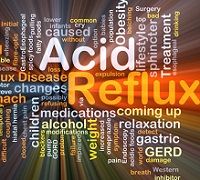TEMPO Trial Finds Transoral Incisionless Fundoplication Superior to Proton Pump Inhibitors in Some GERD Patients
Transoral incisionless fundoplication (TIF) was shown to be more effective than taking the maximal proton pump inhibitor (PPI) dose in relieving heartburn, regurgitation, and other troublesome symptoms in patients with refractory gastroesophageal reflux disease (GERD).

Transoral incisionless fundoplication (TIF) was shown to be more effective than taking the maximal proton pump inhibitor (PPI) dose in relieving heartburn, regurgitation, and other troublesome symptoms in patients with refractory gastroesophageal reflux disease (GERD), according to the first six months of data from the TEMPO trial.
Karim S. Trad, MD, clinical professor of surgery at The George Washington University School of Medicine and Health Sciences, in Washington, DC, presented the findings at Digestive Disease Week 2013, held May 18-21, 2013, in Orlando, Fla.
“Transoral incisionless fundoplication is a viable treatment option with persistent, troublesome GERD symptoms on maximal doses of proton pump inhibitors in a select patient,” Trad said. “It’s safe and associated with a high level of satisfaction.”
The endoscopic TIF procedure reconstructs the gastroesophageal valve and restores its competency, thus reestablishing the barrier to reflux. It offers similar effectiveness as a surgical repair and doesn’t eliminate future surgery as an option. More than 10,000 people have received the procedure worldwide.
The TEMPO trial is the first randomized, multicenter study to assess the efficacy and safety of TIF performed with EsophyX as compared to maximum dose PPI therapy, Trad said. Eligible participants included patients with GERD for more than one year, patients on daily PPI therapy for more than six months, and patients with an abnormal esophageal pH who were off of PPIs.
Of the 63 participants, 40 received the procedure and 23 received maximal PPI therapy. However, three patients did not complete the six-month follow up, which left 39 patients in the TIF group and 21 patients in the PPI group for data analysis. Trad reported that the patients were well matched and comparable and had a mean duration of PPI therapy of 10 years. There were no differences in quality-of-life screening.
The procedures lasted about 38 minutes, and there were no serious adverse events and no hospital readmissions. Two patients had a length of stay of more than 24 hours — one as a result of post-op dizziness, and the other unrelated to the procedure.
In every component of the symptoms measured, the TIF results were superior and statistically significant with the exception of swallowing, which was not significant.
Ninety-seven percent of patients in the procedure group had complete elimination of regurgitation compared to 50 percent of the maximum PPI cohort. Ninety percent of the procedure patients’ heartburn was relieved compared to 13 percent of controls, and 62 percent in the TIF group had complete elimination of any symptoms compared with 5 percent of the PPI group. Normalized pH was observed in 54 percent of the procedure group and 52 percent of the PPI cohort.
At six months, 90 percent of patients who received the procedure were completely off of PPIs, while the remaining 10 percent experienced an improved quality of life because they began responding to PPIs, Trad said.
Ninety percent of the TIF patients’ esophagitis was healing or reduced compared to 38 percent of the PPI patients.
Procedure patients reported no de novo side effects. Seventy-two percent of fundoplication patients were satisfied compared to a mere 5 percent of PPI patients.
“Transoral incisionless fundoplication could become a useful tool in the reflux specialists’ armatorium for the management of GERD,” Trad concluded.